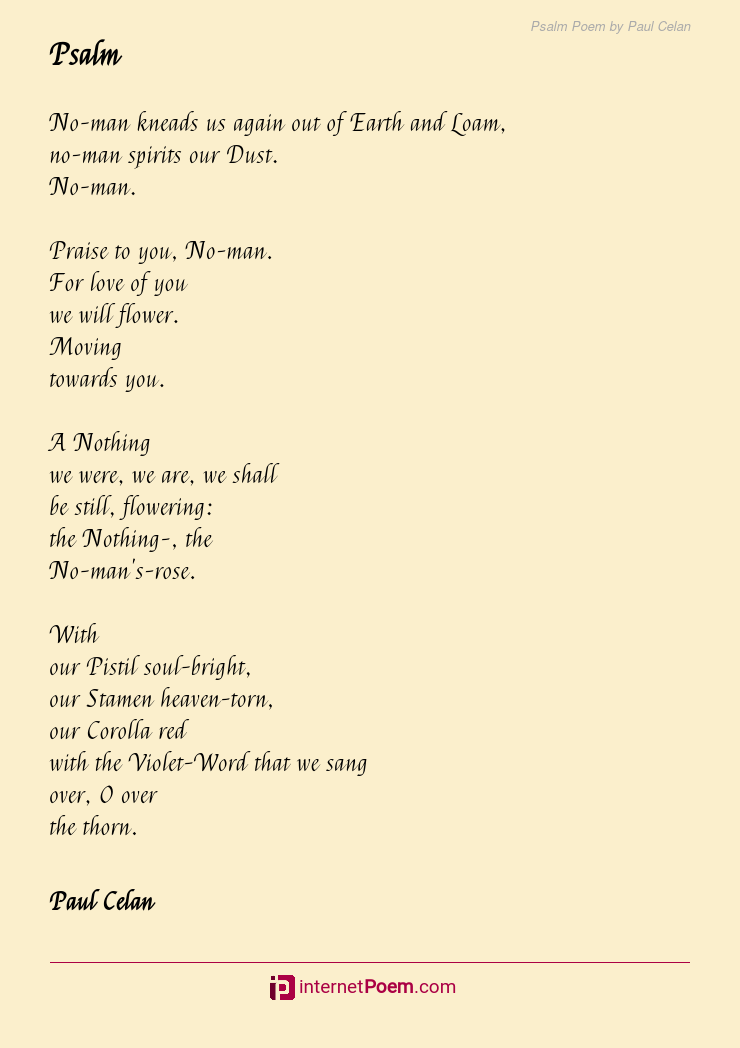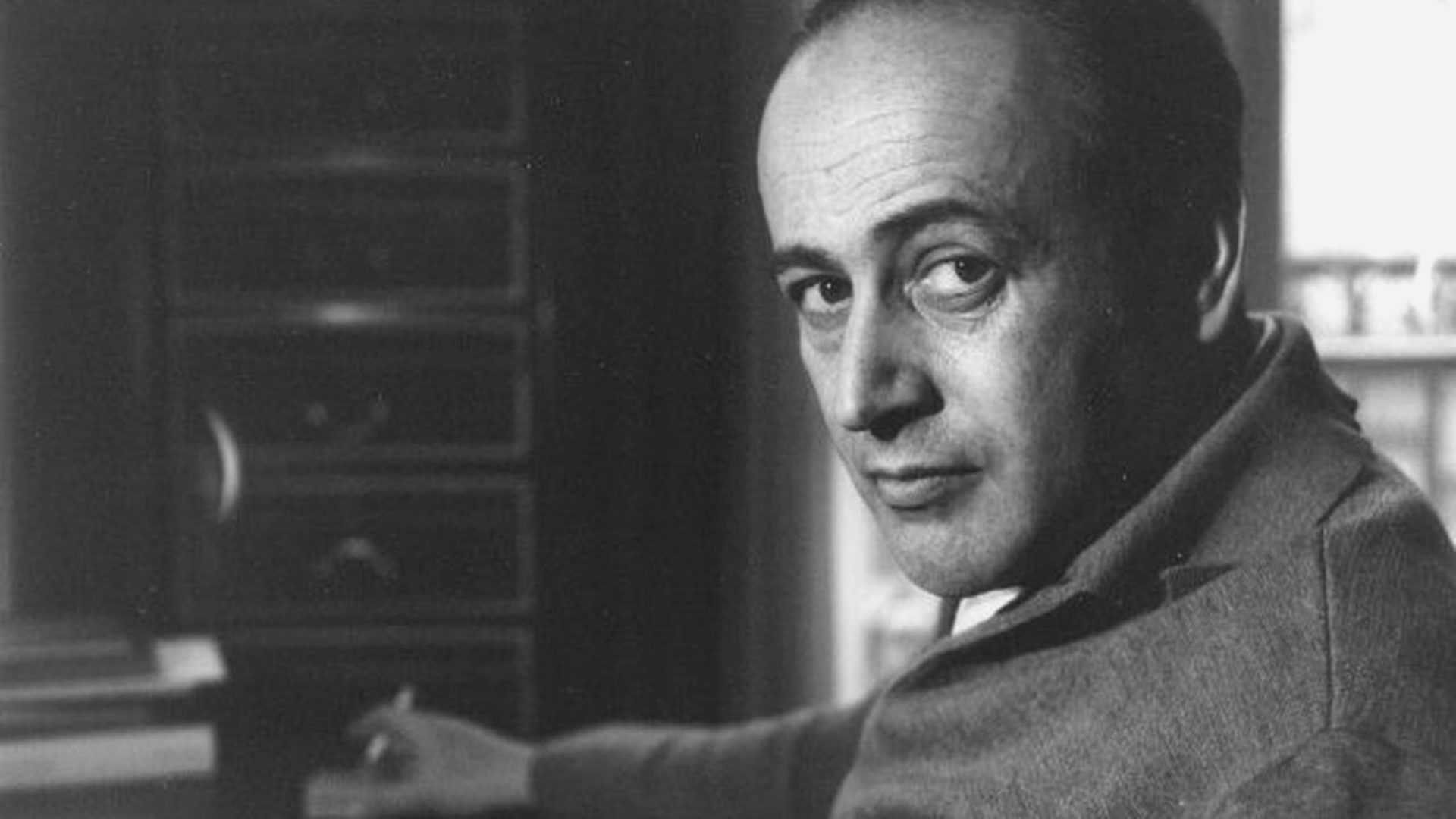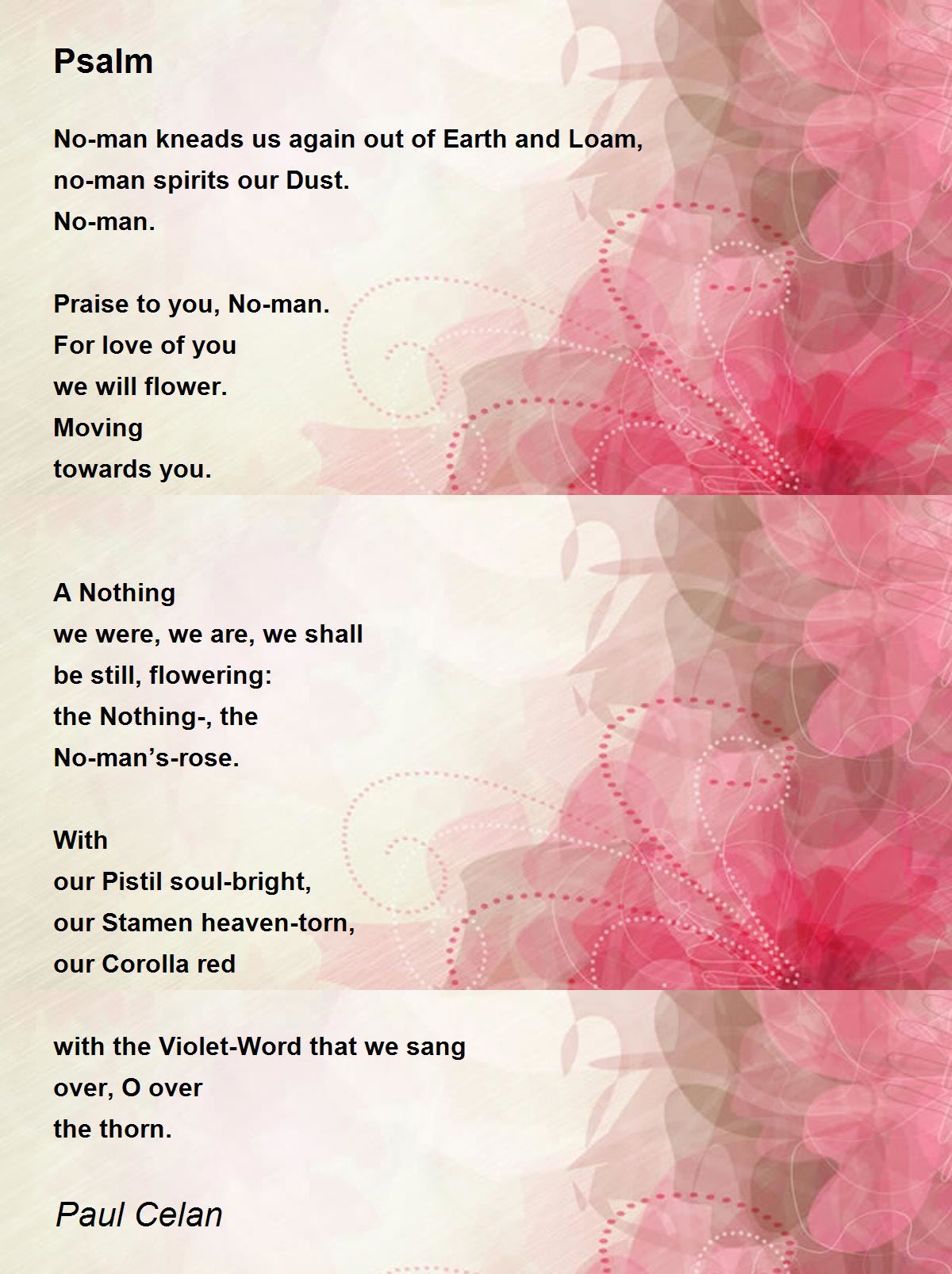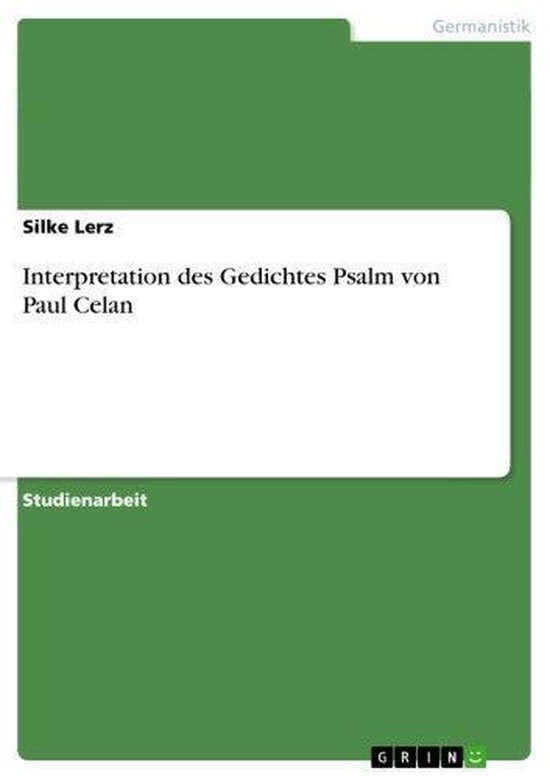
Paul Celan (1920 1970), Romanianborn Germanlanguage Jewish poet
I LOVE TO STRUGGLE over Paul Celan's "You may," the first poem in the "Atemkristall" cycle—21 short poems inspired by the etchings of his wife,. Celan's "Psalm," like so many of his poems, precipitates an impossibility, which the translation raises, in its fashion, to a questionable higher power: Turn it and turn it.
Paul Celan, Psalm i inne wiersze NOWA Poznań Kup teraz na Allegro
Paul Celan. Paul Celan ( / ˈsɛlæn /; [1] German: [ˈtseːlaːn] ), born Paul Antschel, (23 November 1920 - c. 20 April 1970) was a Romanian poet and translator, regarded as one of the major German-language poets of the post- World War II era. His poetry is characterized by a complicated and cryptic style that deviates from poetic conventions.

Paul Celan Τα ρουμανικά ποιήματα THE ATHENS REVIEW OF BOOKS
The context of Paul Celan's poetry and the imagery of "Psalm" also suggest that, more specifically, this poem is about Jewish people who were murdered by the Nazis during World War II. This.

ionklo Blog
choirs, back then, the psalms. Ho, ho-sanna. The temples still stand. A star still has its light. Nothing, nothing is lost. Ho-sanna.. Paul Antschel, who wrote under the pseudonym Paul Celan, was born in Czernovitz, in Romania, on November 23, 1920. The son of German-speaking Jews, Celan grew up speaking several languages, including Romanian.

hiperrealizm FUGA ŚMIERCI
In "Psalm," Celan addresses the universally valid question of the relationship of the world and an infinitely absent God. Twentieth century European nihilism, frequently attributed to the.

Paul Celan (19201970) "Psalm" Wort, Psalms, Paul, Books, Play Dough
Paul Celan reading his own poem, Psalm.

Paul Celan on Poetry, Language, Silence, and More BIG OTHER
The Thousand Darknesses of Murderous Speech. Paul Celan wrote brutal poetry for a barbarous world. Art by Ryan Inzana. To read the Jewish-Romanian poet and Holocaust survivor Paul Celan is also to read commentators, commentators on commentators, and so on and on, until finally the clatter of exposition overwhelms the oracular verse.

Paul Celan 70 Poems by Paul Celan
Paul Celan reading his poem 'Psalm' from 'Die Niemandsrose' (1963)Video: http://www.imdb.com/title/tt0054632/

Psalm Poem by Paul Celan
This essay offers a "Tawadian" translation of Paul Celan's poem "Psalm," particularly the neologisms in the final stanza, into Chinese characters. In particular, the translation of "Purpurwort" as "yurusu," a character that consists of the signs for "purple" and "word" but has the meaning of "forgiveness, amnesty.

Die Verarbeitung des Holocaust bei Nelly Sachs [Schmetterling] und Paul
Celan knew what it was to sing "above, O above/ the thorn." . . . "Psalm" draws not only on the image of God forming man out of clay in Genesis but also, most crucially, on Psalm 103:15: "As for man, his days are as grass: as a flower of the field, so he flourisheth.". To the beauty and brevity of that flourishing, Celan adds an.

The Poetry of Paul Celan as Inspiration for Artists Anselm Kiefer and
No one kneads us again out of earth and clay. no-One summons our dust. No one. Blessed art thou, No One. In thy sight would. we bloom. In thy. spite . A nothing.

Paul Celan „Psalm" YouTube
He also adopted the name Celan, an anagram of "Ancel," the Romanian form of Antschel. After two years working as a translator in Bucharest, he left Romania and its language for good. "Only.

Psalm Poem by Paul Celan Poem Hunter
Paul Celan, the Last Psalmist was published in Psalms In/On Jerusalem on page 143.
Paul Celan/Psalm on Vimeo
The poet used anaphora at the beginnings of some neighboring lines. The same words no, our are repeated. There is a poetic device epiphora at the end of some neighboring lines man is repeated). If you write a school or university poetry essay, you should Include in your explanation of the poem: summary of Psalm; central theme; idea of the verse;

Interpretation des Gedichtes Psalm von Paul Celan (ebook), Silke Lerz
Paul Celan was born Paul Antschel in Czernovitz, Romania, to a German-speaking Jewish family. His surname was later spelled Ancel, and he eventually adopted the anagram Celan as his pen name. In 1938 Celan went to Paris to study medicine, but returned to Romania before the outbreak of World War II. During the war Celan worked in a forced labor camp for 18 months; his parents were deported to a.

Paul Celan Psalm YouTube
Psalm By Paul Celan About this Poet Paul Celan was born Paul Antschel in Czernovitz, Romania, to a German-speaking Jewish family. His surname was later spelled Ancel, and he eventually adopted the anagram Celan as his pen name. In 1938 Celan went to Paris to study medicine, but returned to Romania before.